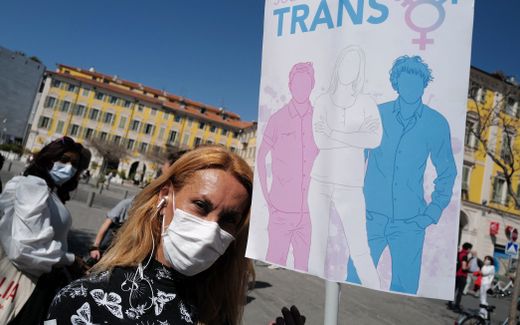No easy ride for Danish bill legislating gender change from birth

Photo Unsplash, Tim Bish
Northern Europe
Despite criticism, the Danish government plans to remove all age limits for people who want to change their gender on paper. If accepted, this would make Denmark's legislation Europe's most far-reaching. Conservatives call the proposal "completely insane".
In a new LGBT plan published on Monday, the Danish government proposes to remove all age barriers for gender reassignment. Theoretically, children as young as 0 years old could thus apply for a gender change on their passports and other official documents. However, it needs parental permission if younger than 15.
This reports the Christian Danish daily Kristeligt Dagblad. With the proposal, the government of Social Democrat Mette Frederiksen is defying a clear recommendation from the Danish Ethics Council.
Ethics
Two years earlier, the Social Democratic government tabled a similar proposal. Then, the Danish parliament decided to consult with the Ethics Council. The Council suggested lowering the age limit to 10-12 years, instead of the current age limit of 18 years. "It must be considered doubtful whether children before puberty can see through the fundamental causes and consequences of a possible change of legal gender", the Council argued. "Taking such a position", the Council stated, "requires a certain measure of maturity and awareness. One must assume that no pre-school child can formulate a wish for a changed legal sex".
After the negative feedback from the Council, the Social Democratic Party withdrew, demanding certain elements be revised. However, two years later, the government proposed a similar initiative. The plan will be presented and voted upon in October.
Furious
Not only the Ethics Council has a negative stance toward the proposal. Several opposition parties are furious about the idea.
The Conservatives strongly oppose the proposal. According to the party's spokeswoman for equality, Birgitte Bergmann, children should be allowed to be children. "You are not old enough to change gender as long as you are not allowed for yourself to decide when you go to bed." She calls the proposal "completely insane". This reports the Christian Norwegian daily Dagen.
Pia Kjærsgaard of the conservative Danish People's Party calls the proposal an assault against small children. She says so to Danish daily Jyllands-Posten. "There are only two genders. Then there are some who, in one way or another, are not one or the other gender, and we must take care of them. But we must be careful not to make the entire population so remarkable that people already talk about legal gender change from birth".
Radical
On the other end of the political spectrum, the reactions are different. Pernille Skipper, a social rapporteur for the left-wing Enhedslisten, is happy that the bill might "finally" come. She says so to public broadcaster TV2. "I think that setting the limit at zero years is to respect the right of the families and the children to decide for themselves about their own gender identity", Skipper says.
According to Samira Nawa, gender equality rapporteur for the Social Liberal Party 'Radical Left', there "probably won't be any zero-year-olds who change gender". "But there are some in kindergarten, or when they start school, who feel different from the gender they were born in. So, we don't think there should be any age limit", she says.
Both Skipper and Nawa point out that the decision to change gender can be legally reversed. "It is not an operation, but people sometimes talk as if it is final", Skipper says.
Mental illness
Nevertheless, the proposal could make Denmark's legislation in this area one of the most liberal in Europe. In 2014, the Danish parliament voted to remove the requirement of a mental disorder diagnosis and surgery with irreversible sterilisation during a legal sex change. Since September 1st, 2014, Danes over 18 who wish to apply for a legal sex change can do so by stating that they want to change their documentation, followed by a six-month-long "reflection period" to confirm the request.
Pending a decision by the World Health Organisation (WHO) to remove transgender gender identity from its list of mental illnesses, Denmark initially postponed a unilateral change. Citing a lack of progress at the WHO, the Danish Parliament decided to remove transgender identity from the National Board of Health's list of mental illnesses in 2016. The change came into effect on January 1st 2017. It was the second country to do this, after France which did so in 2010. The WHO eventually removed transgender identity from its list of mental illnesses in June 2018.
Related Articles






